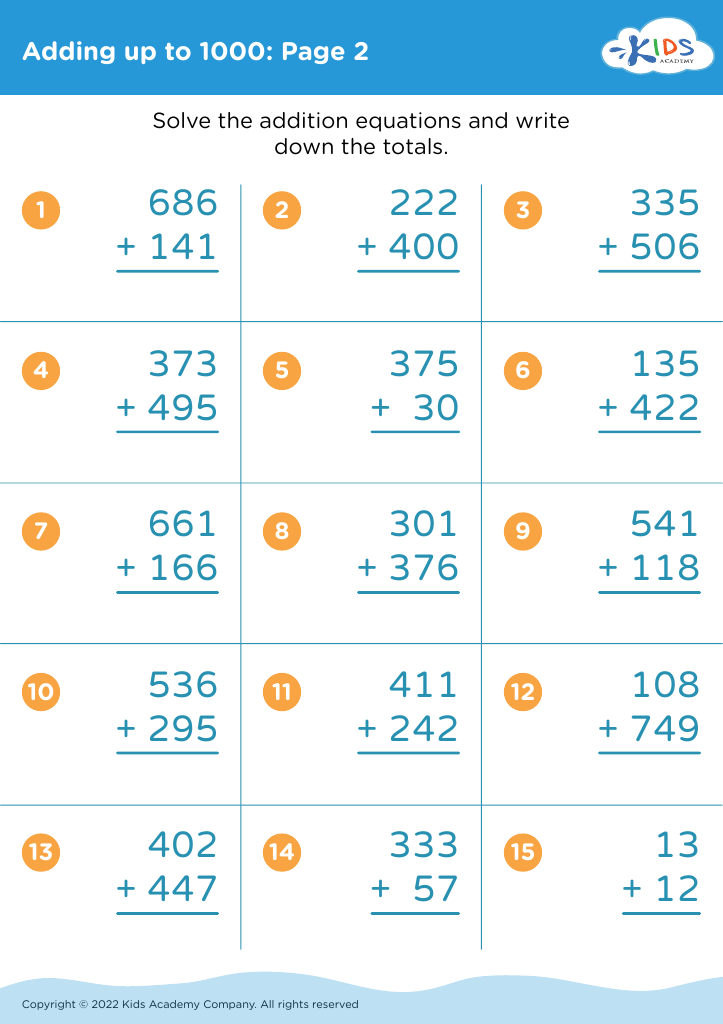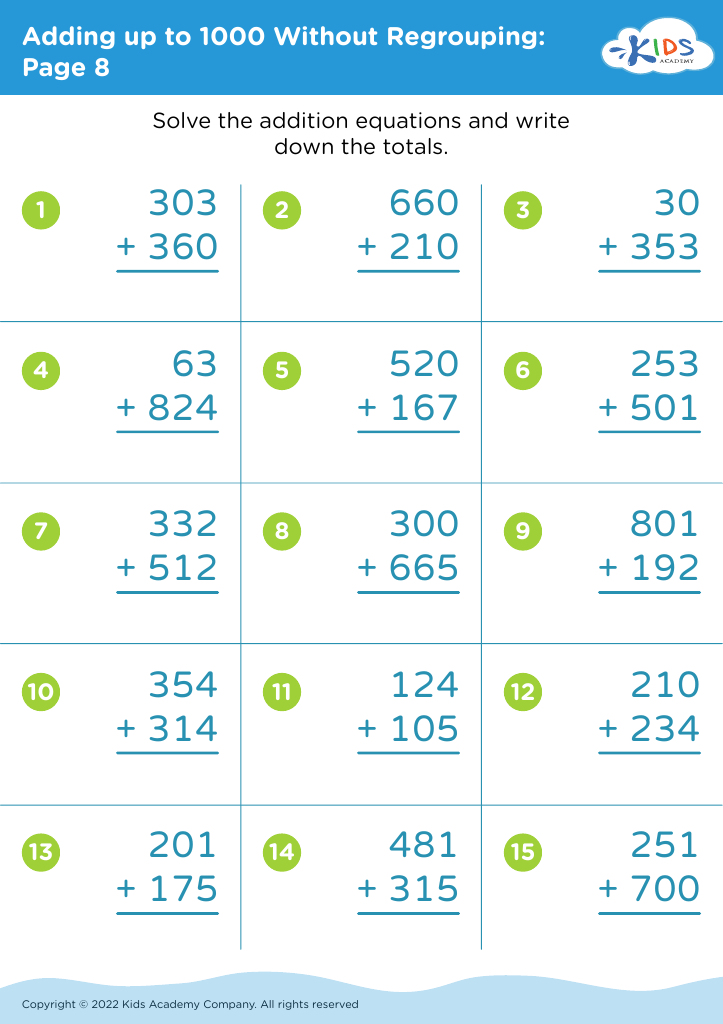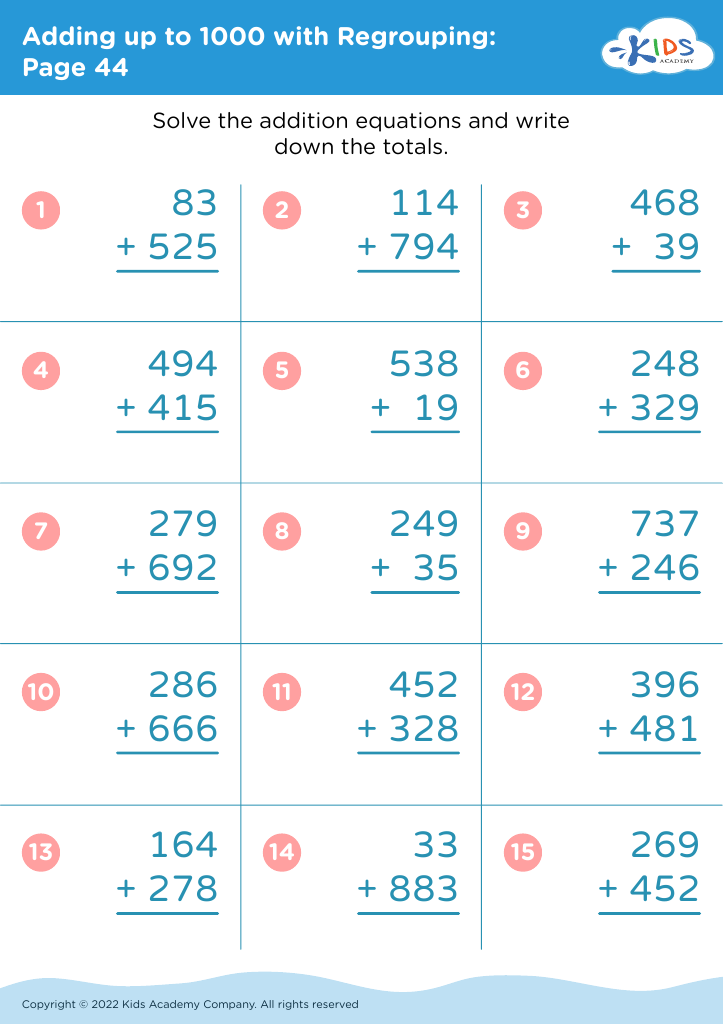Develop critical thinking Math Worksheets for Ages 5-7
13 filtered results
-
From - To
Our “Develop Critical Thinking Math Worksheets for Ages 5-7” provide children with engaging exercises designed to enhance their analytical and problem-solving skills at an early age. Packed with fun and interactive activities, these worksheets cover essential math concepts, such as pattern recognition, logical reasoning, and number sense. Each worksheet is carefully crafted to stimulate curiosity and foster a love for math through exploratory learning. Perfect for classroom settings or at-home practice, our worksheets aim to build a strong foundation in mathematics, ensuring young learners not only understand core principles but also develop the critical thinking skills needed for future academic success.
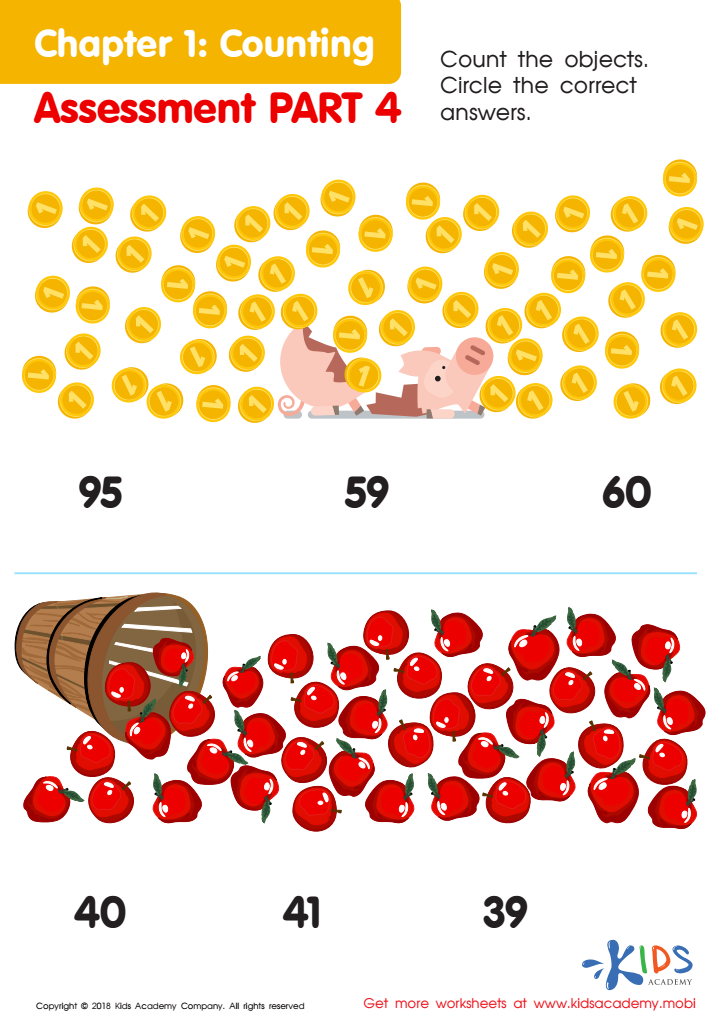

Counting: Assessment 4 Worksheet
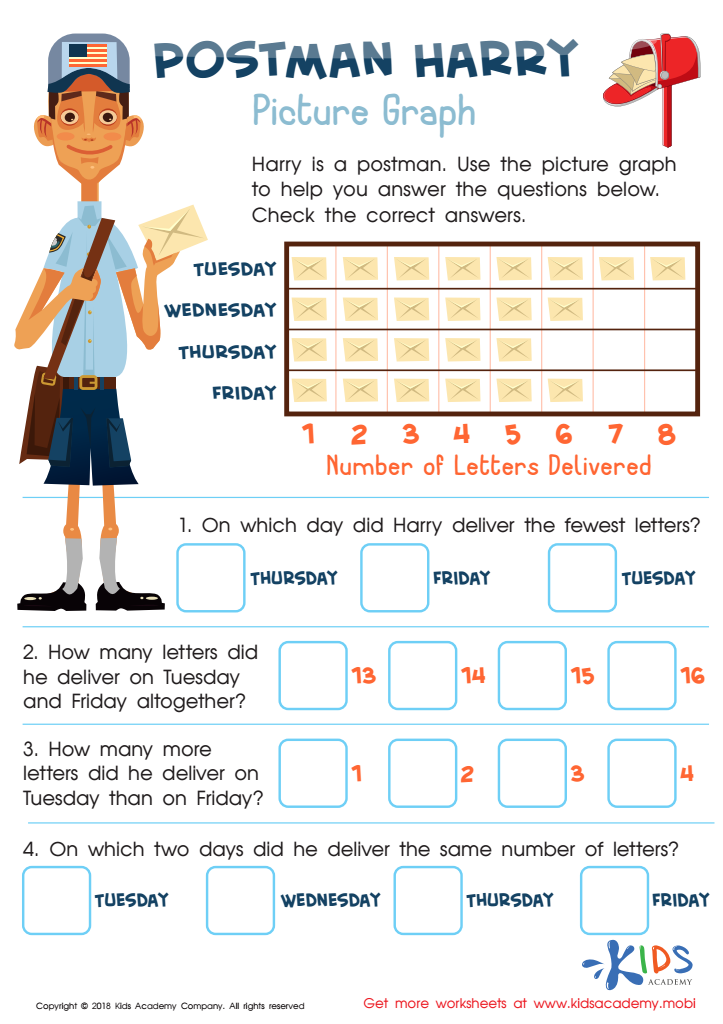

Postman Harry: Picture Graph Worksheet
Developing critical thinking in math for children aged 5-7 is essential for laying a strong educational foundation and fostering lifelong problem-solving skills. At this young age, kids are naturally curious and absorb information like sponges, making it the perfect time to introduce concepts that promote thinking beyond mere memorization.
Engaging young students in critical thinking activities helps them understand not only how to arrive at an answer but also why the answer makes sense. It encourages them to analyze, reason, and apply logical thinking to solve problems, which is a crucial skill in everyday life. For instance, when a child figures out why 2+3 equals 5 and not just memorizes it, they're learning to think critically about numbers and their relationships.
Moreover, critical thinking in math nurtures creativity and flexibility in thinking. Children learn to approach problems from multiple angles and think of various possible solutions. This process boosts confidence, as they come to see challenges not as barriers, but as opportunities to explore.
Incorporating these skills early on can also create a positive attitude towards math, reducing anxiety and making the subject more accessible and enjoyable. Ultimately, critical thinking in math equips children with essential life skills, fostering better academic performances and preparing them for future complexities.

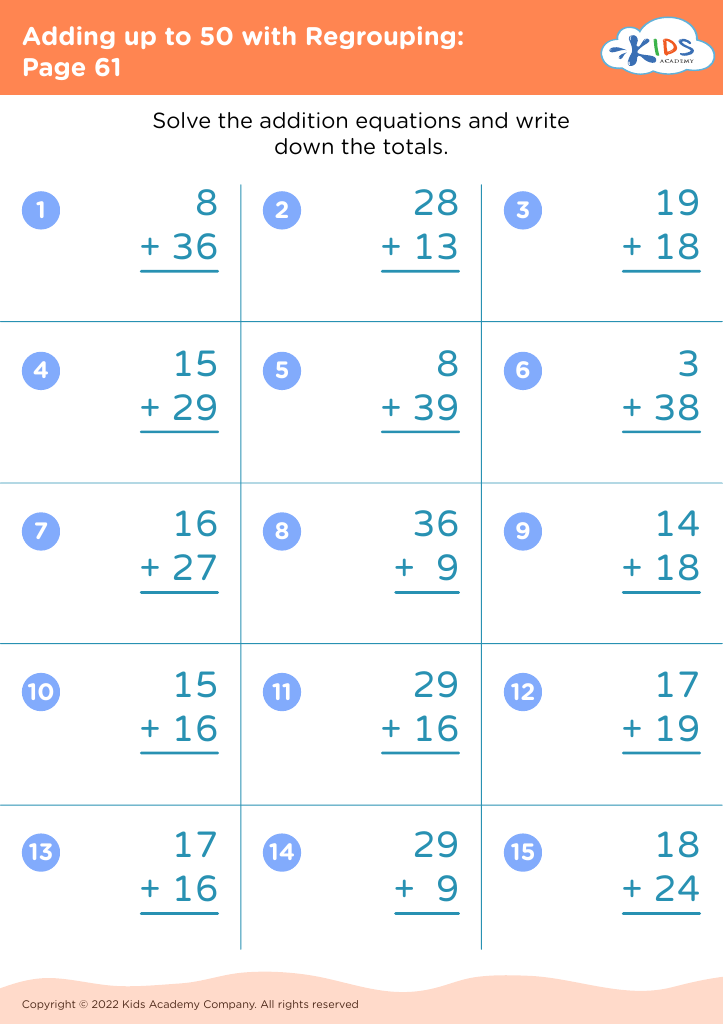

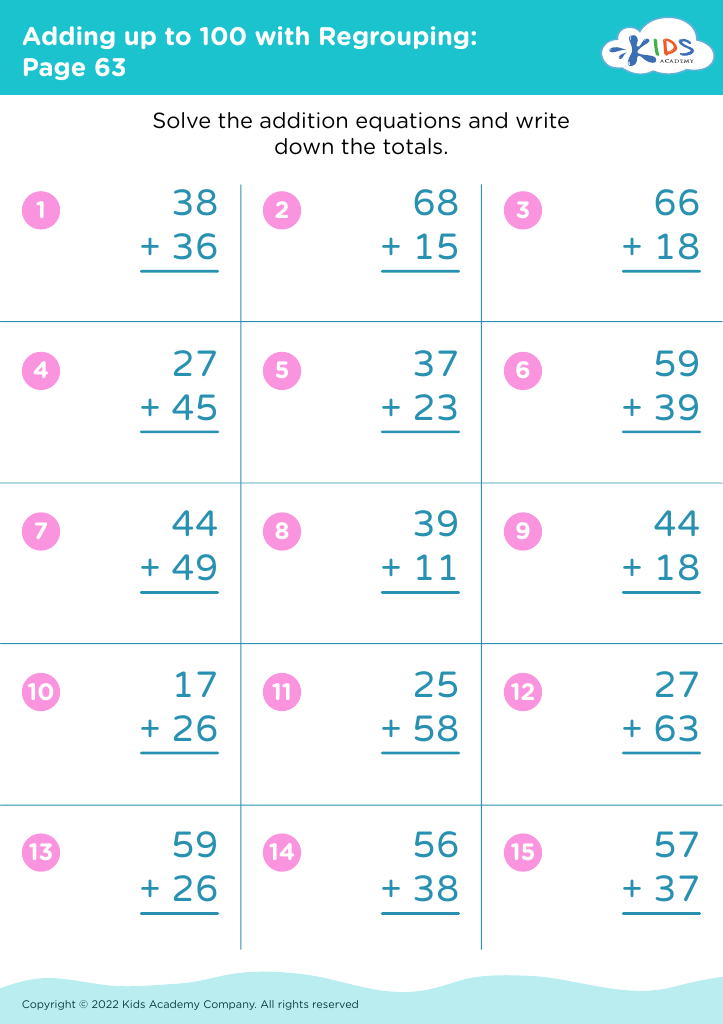
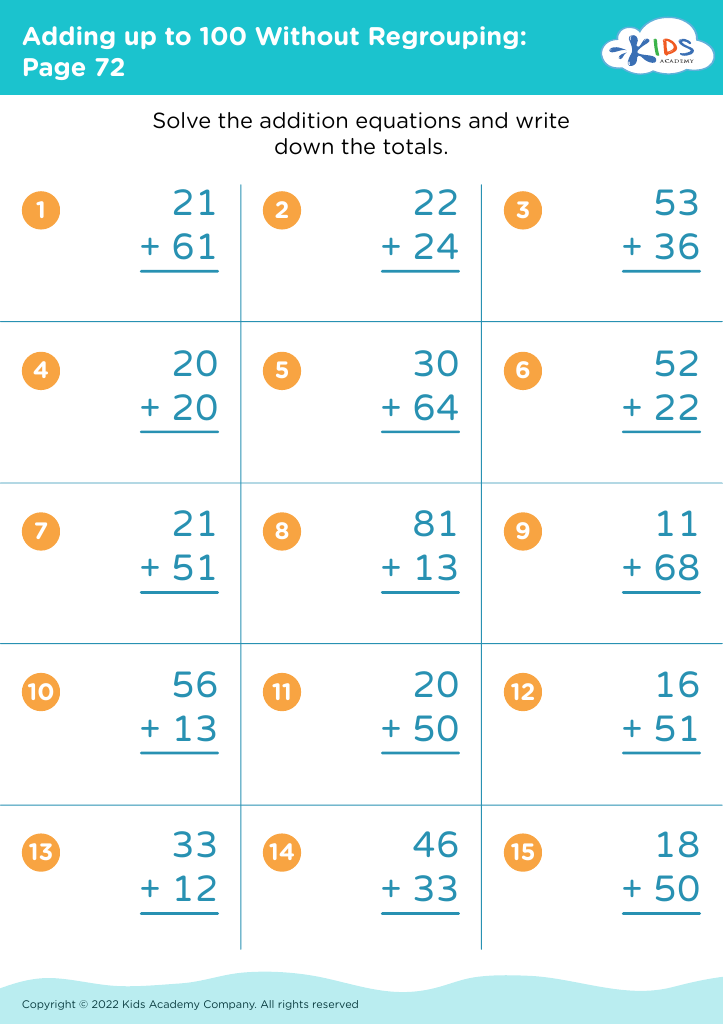
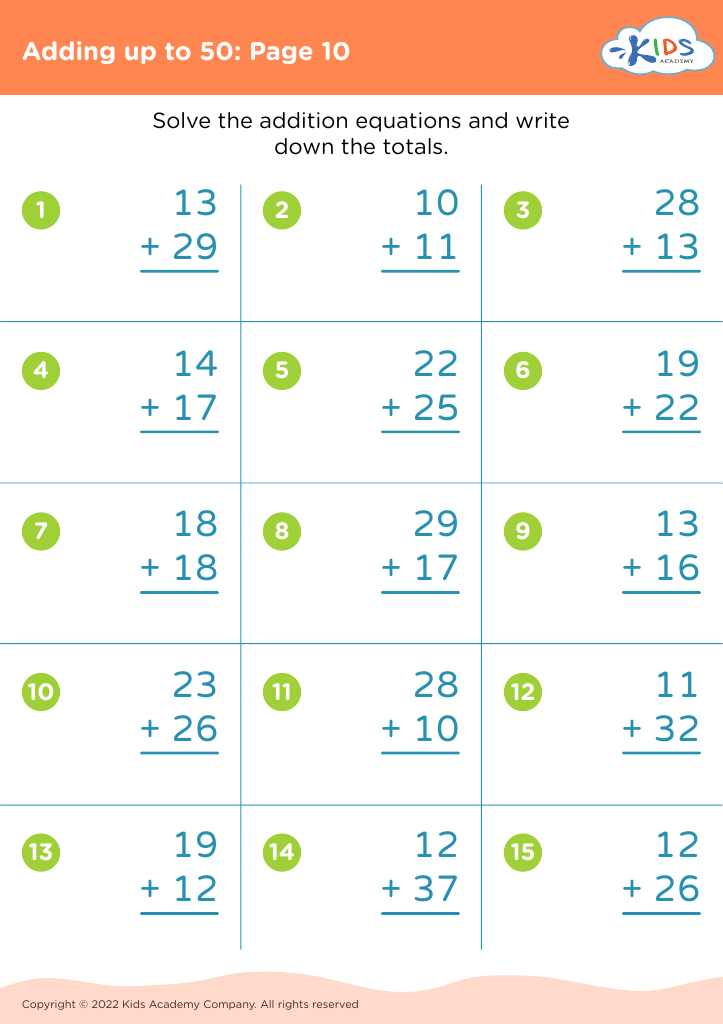
 Assign to My Students
Assign to My Students




